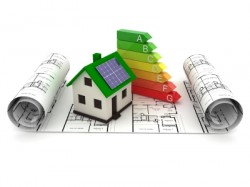
A home energy audit will make you aware of how energy is used in your home, and changes to which areas will result in the greater efficiency.
Most scientists agree that global warming, which increases as our ozone layer is depleted, is partly due to the increase in greenhouse gases in the atmosphere. These greenhouse gases are released by processes which use petroleum products or by-products whether directly or indirectly. In today’s society it is nearly impossible to not add to these emissions in some way, but there are ways to reduce our carbon footprints, and thus do our part to slow down the global warming process.
Though it won’t be easy, there are certain lifestyle changes which can be made which will both decrease your carbon footprint, and increase savings from energy related costs. The use of solar power systems at home; installing solar panels; switching to solar powered small appliances and using solar powered garden lights as well as reducing overall energy usage, will result in increased savings and the production of less of these harmful gases.
A home energy audit is one way to begin this process as it will make you aware of how energy is used in your home, and changes to which areas will result in the greater efficiency. A professionally done audit will be complete along with advice and money saving tips, but you can also do one yourself by using a handheld power metre to test each outlet to measure the amount of electricity being used by each appliance, whether it is turned on or not. You can even do simple evaluations by taking weekly reading of your power metre to get a quantitative view of your energy consumption.
Changing wasteful habits take time, but here are a few positive ways to begin.
- Turn off all lights when you leave a room.
- Switch to LEDs or CFLs instead of incandescent light bulbs.
- Unplug or switch off appliances at the wall when not in use.
- Wash clothes in cold water.
- Switch to solar powered water heaters, but if not, ensure that electric water heaters have an insulating blanket around them.
- Insulate your ceiling; most of your household heat may be lost here.
- Shade West-facing windows.
- Reduce household heat loss by sealing cracks in door and window frames.
- Unplug all battery and phone chargers when not in use.
Reducing our carbon footprint is only one step towards slowing down global warming, but every single step is one in the right direction.

















